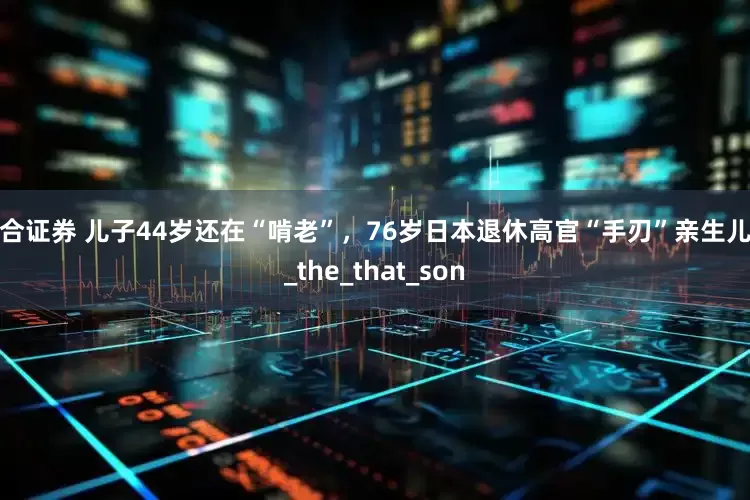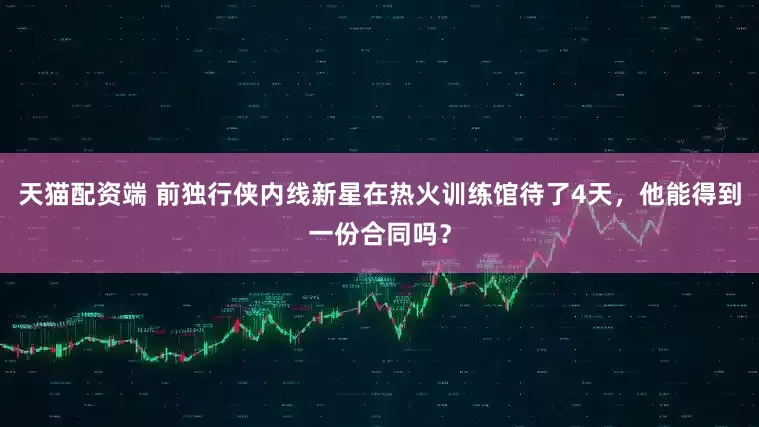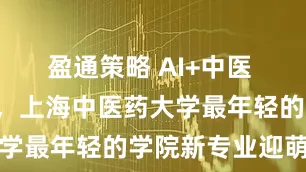
At the age of 76星合证券, he tragically took the life of his own son.
On that day, a sports event was being held at a nearby school in their residential area.
The loud noises disturbed his 44-year-old son while he was playing video games.
In frustration, the son declared that he wanted to kill those noisy kids.
展开剩余95%What might have been just a reckless outburst from a middle-aged man was taken seriously by the elderly father.
At 76, he feared that his son could indeed carry out such an extreme act.
Reflecting on the years of burden his son—a so-called “failure”—had imposed on both him and his wife, along with other troubling behaviors,
the father’s anger surged uncontrollably, pushing him to a dark resolve.
He then grabbed a kitchen knife...
This tragic incident, where a father killed his own son, took place in Japan.
It sparked a massive public debate soon after.
The shock wasn’t merely due to the fact that the perpetrator, Kumazawa Hideaki, killed his biological son,
but also because Kumazawa was a former high-ranking government official before retirement.
He had served as the Vice-Minister of the Ministry of Agriculture, Forestry and Fisheries,
and also worked as an ambassador to the Czech Republic.
A man who had a distinguished career suddenly reappeared in the public eye as a murderer.
And the victim was none other than his own son.
The reasons behind this tragedy were clearly deeper than just the disturbance caused by “noise.”
Kumazawa Hideichiro was the son killed by his father.
People often imagine that children of such high-level officials belong to elite social classes,
living lives filled with privilege and wealth, moving in high society where millions of yen change hands casually.
However, Kumazawa Hideichiro defied this stereotype.
Before retiring, Kumazawa Hideaki had spent most of his life in Japanese politics.
After his son was born, the responsibility of raising the child fell solely on the mother.
The absence of a father’s involvement seemed to have a significant negative effect on Hideichiro’s upbringing.
Once Hideichiro reached junior high school, his rebellious nature began to show more clearly.
Without his father’s discipline, he started frequently physically abusing his mother.
These violent episodes often erupted over trivial daily disputes.
Despite the mother’s earnest efforts to reason with him, the adolescent son in the throes of rebellion refused to listen.
Thus, arguments escalated into physical violence.
Years later, Hideichiro even boasted online about how thrilling it was the first time he knocked his mother to the ground in eighth grade.
During these conflicts, his younger sister silently witnessed the abuse.
Being too young, she felt powerless to intervene.
Tragically, she later died by suicide due to depression.
On one occasion when Hideichiro assaulted their mother again, his father received a call and hurried home.
Yet even Kumazawa Hideaki appeared helpless against his increasingly defiant son.
Estimating the timeline, Hideichiro was in his early teens during junior high,
while he was 44 years old when his father killed him—spanning over three decades.
From another perspective, Kumazawa Hideaki had ample time to discipline and guide his son systematically.
But clearly, he did not do so.
Instead, he gradually let things slide, allowing Hideichiro’s behavior to grow more brazen.
From middle school through high school, Hideichiro was a nightmare for the family, especially for his mother and sister.
Kumazawa Hideaki dedicated himself fully to his career as a rising government official,
leaving little time to address his son’s issues.
By the time he tried to intervene, it was already too late.
After high school, Hideichiro at least managed to enter university and move out, living independently.
On the surface, it seemed the mother and sister’s nightmare might finally end.
But the reality was far more complicated.
Rebelliousness was only one side of Hideichiro’s character.星合证券
Growing up in a wealthy household, he naturally developed the habit of expecting everything to be handed to him.
During college, he rented an apartment near school but only contacted his parents when he ran out of money.
Throughout this period, Kumazawa Hideaki and his wife still made no effort to correct or educate their son.
Whenever he needed something, they complied without hesitation.
They regularly sent him living expenses and essentials, and even cleaned his apartment for him.
Then, unexpectedly, Hideichiro dropped out of university.
Being an adult, he should have started working to support himself.
But accustomed to a pampered life, leaving his comfort zone was impossible for him.
After quitting school, he idled at home for a while.
Yet again, his father failed to take proper measures and only indulged him further.
Without a university degree, finding a decent job was nearly impossible for Hideichiro.
He disliked the idea of accepting low-level positions.
So Kumazawa Hideaki personally intervened, using his connections to secure an office job for his son.
Initially, Hideichiro attended work regularly.
In many Japanese private companies, lifelong employment is common,
meaning that if an employee behaved and the company survived, they could work until retirement.
However, Hideichiro was far from a compliant employee.
After publicly criticizing his boss on a personal blog, he was fired.
This dismissal deeply affected him.
Growing up as the favored child, always indulged by his parents, the idea that a superior could treat him badly was intolerable.
Following his firing, he even threatened to kill his boss.
This terrified Kumazawa Hideaki and his wife.
Accustomed to spoiling their son, they knew he might actually act on such threats.
After much pleading at home, Hideichiro abandoned his murderous plans.
From that point on, Hideichiro stopped working altogether and openly relied on his parents financially.
Japan’s broader social environment also contributed to this behavior.
Post-war Japan experienced a brief hardship, followed by rapid economic growth from the 1970s through the 1990s.
However, the bursting of the real estate bubble led to a prolonged economic downturn.
Those born after the 1970s, like Hideichiro, enjoyed only a brief taste of prosperity as teenagers.
But entering adulthood, they faced stagnant economic conditions and fierce competition.
Compared to their parents’ generation, their prospects were bleak.
As a result, a widespread trend emerged in Japan where many young adults became “parasite singles,”
living at home and relying heavily on their parents’ income or pensions, often out of dissatisfaction or unemployment.
According to government data, around 610,000 people over age 40 fit this description.
Hideichiro was one of them.
From a certain perspective, his father was aging and increasingly powerless to control him.
Meanwhile, Hideichiro became even more entitled in his dependence.
In May 2014, at age 39, Hideichiro posted online,
“Since you gave birth to me, you should be responsible for me until I die.”
It was a clear message aimed at his parents.
By then, Kumazawa Hideaki was 71, well into old age.
The parents naturally wanted their son to work,
but he stubbornly refused, justifying his parasitic lifestyle.
This caused frequent conflicts between them.
In October of the same year, Hideichiro posted another chilling message online:
“If I could get permission to kill, the first person I’d kill would be my stupid mother.”
In spring 2017, his hostility toward his parents surfaced again multiple times.
He repeatedly expressed a desire to kill his mother and openly admitted enjoying beating her during his junior high years.
Yet, despite his violent threats, he was likely more talk than action.
After all, killing his parents would destroy the very source of his financial support.
Kumazawa Hideaki’s retirement income was significantly higher than that of an average worker.
In June 2018, Hideichiro boasted online about his expenses,
reporting that his spending in May exceeded 320,000 yen (about 20,000 RMB).
He bragged that his monthly spending surpassed many people’s monthly income.
Most of his money went toward online gaming.
He claimed he had barely logged off since the game’s launch day.
In private chats, he also boasted, “My dad was a big official; one call from him and the game would shut down.”
If these words came from a teenager, they might be more understandable.
But Hideichiro was already 43 when he said this.
In 2019, Hideichiro moved back to his parents’ home.
His daily routine was solely playing online games,
to the point that neighbors barely noticed his presence.
To outsiders, retired Kumazawa Hideaki appeared polite and composed, showing no visible signs of trouble.
However, just one month after Hideichiro’s return,
he met his death at his father’s hands.
It was the afternoon of June 1, 2019.
That day, a nearby elementary school was holding a sports day,
and the loud noises annoyed Hideichiro.
He angrily said, “I want to kill those damn kids!”
A quarrel broke out between father and son.
His mother happened to be out of the house that day.
After the argument, Kumazawa Hideaki’s murderous intent grew stronger.
Just two days prior, a man in Kawasaki city who had been unemployed for a long time,
and denied welfare assistance, attacked a group of elementary students, killing two.
Kumazawa Hideaki later explained that he killed his son because he feared his son might commit a similar violent act.
However, years of accumulated resentment were likely the real cause.
Before acting, Kumazawa Hideaki wrote a farewell letter to his wife,
stating that he had no other options left.
He hoped she would arrange a burial site for them both after their deaths.
Then, he grabbed a kitchen knife and stabbed his son multiple times in the chest and head.
He plunged the knife more than a dozen times before calling the police to surrender.
The murder weapon was a commemorative knife he had received while working at the Ministry of Agriculture.
The case caused an uproar throughout Japan.
Some expressed sympathy, others condemnation.
Six months later, the trial officially began.
The prosecution initially sought a 10-year prison sentence for Kumazawa Hideaki.
But in a December ruling, the court sentenced him to 6 years in prison.
The defense argued for a suspended sentence, citing Hideichiro’s long-term domestic violence as justification and Kumazawa Hideaki’s desperate situation.
After the verdict, Kumazawa Hideaki said it was his responsibility to atone for his son’s death.
This tragedy ended in such a manner.
The father-son relationship deteriorated not only due to societal pressures but also because of Kumazawa Hideaki’s early neglect.
Hideichiro was like a failed project,
and in the end, the father destroyed this failure.
Written by Nancy
Image source: Internet星合证券, contact for removal if infringement
发布于:天津市天创优配提示:文章来自网络,不代表本站观点。



